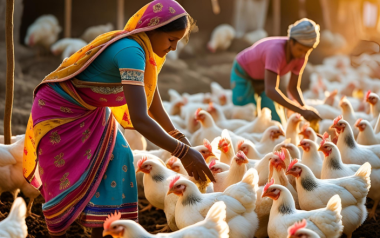29 Apr 2025
Energy level and its relation with broiler breeder’s feed intake
Broiler breeder diets are typically formulated based on a specific energy level to meet the birds’ requirements for growth, egg production, and fertility.
The energy level in feed is a key determinant of broiler breeder’s feed intake, according to Duangpon Panyangarm, Technical Service Manager at Aviagen Asia Pacific.
She explained that broiler breeder diets are typically formulated based on a specific energy level to meet the birds’ requirements for growth, egg production, and fertility.
However, variations in feed energy levels can occur due to changes in ingredient composition or quality.
“If energy is limiting production, giving more feed will help. However, if another nutrient is limiting production, increasing feed may lead to increased bodyweight gain and reduced production,” said Dr Duangpon.
Changes in feed energy density directly impact the amount of feed required to meet the birds’ daily energy needs. For example, energy requirement 460 kcal/bird/day:
- 2,800 kcal/kg x 166 g/bird/day = 464.8 kcal
- 2,700 kcal/kg x 172 g/bird/day = 464.4 kcal
Dr Duangpon explained that when feed energy levels deviate from the recommended values, it is imperative to adjust the concentrations of other essential nutrients, including amino acids, minerals, and vitamins, to maintain a balanced diet.
To help broiler breeder producers, she recommended some practical guidelines:
- Regular feed testing – producers should routinely test feed formulations to monitor energy levels and nutrient composition.
- Body weight monitoring – track breeder body weights weekly to identify any deviations from target weights that may indicate improper feed intake.
- Adjust feeding programs – modify feeding quantities based on actual energy levels in the feed while maintaining appropriate nutrient ratios.
- Consult nutrition experts – work with poultry nutritionists to develop feeding strategies tailored to your flock’s needs.









































